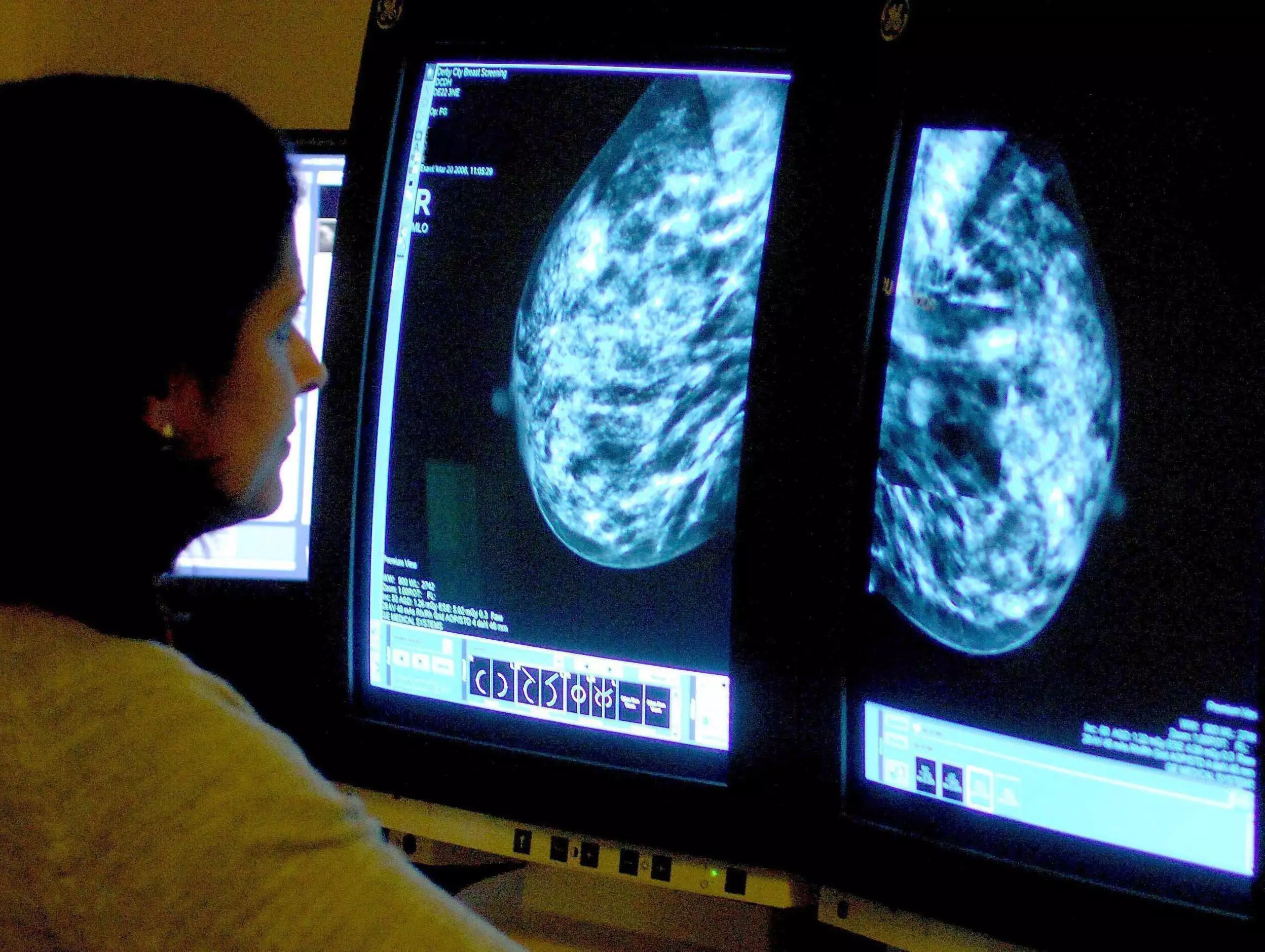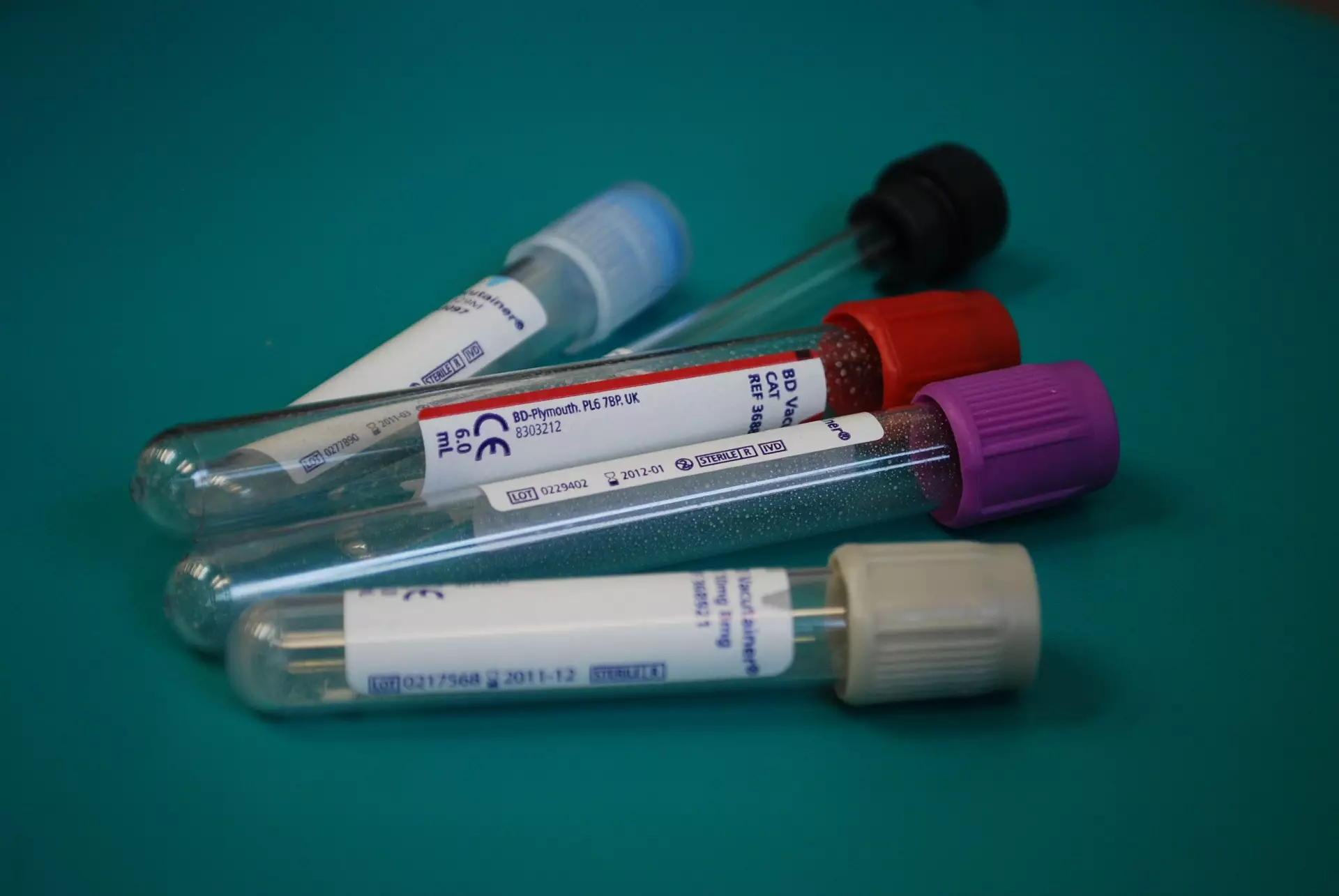
British scientists have developed a simple new blood test for breast cancer that they say is up to one hundred times more sensitive than any other.
Designed to monitor patients in the early stages of the disease, experts hope that it could help to establish personalised treatments and prevent unnecessary surgery.
TARDIS (Targeted Digital Sequencing) works by analysing tiny fragments of cancer cells in the bloodstream known as 'circulating tumour DNA'.

Lead author of the Translational Genomics Research Institute (TGen) in Arizona said: "Until now blood tests for breast cancer have only been sensitive enough to reliably identify tumour DNA in people with advanced disease."
Advert
"We've shown TARDIS is able to detect circulating DNA at extremely low concentrations in the blood - opening up the possibility of monitoring patients with early-stage breast cancer to find out how their disease is responding to treatment."
According to a study published in the journal Science Translational Medicine, the test was trialled on 33 British and US patients enrolled at Addenbrookes Hospital in Cambridge and two clinics in Arizona and California.
An analysis of 80 blood samples found the test was able to identify circulating tumour DNA in all the women before they started treatment.

The study involved patients with different type of breast cancer, including the most aggressive form known as triple negative, and those fueled by the hormones oestrogen and progesterone.
It also helped to identify those with no cancer cells left among the 22 who received pre-op treatment such as chemotherapy, radiotherapy or hormone therapy.
Experts now believe that the new test could enable doctors to use blood samples to continuously monitor how well breast cancer treatments are working, allowing them to personalise each patient's therapy.
Advert
This is even more important due to the fact that in the UK, around 95 per cent of cases are diagnosed before the disease has spread.

"Instead of patients undergoing six to eight cycles of chemotherapy (15-21 weeks of treatment), after one or two cycles (3-6 weeks) we would use the TARDIS test to look for a significant drop in circulating tumour DNA. If a drop was not detected, the treatment could be stopped or changed."
At the moment, many people with early-stage breast cancer are treated with drugs to shrink the tumour followed by surgery to remove any remaining cancer.
Advert
However 30 per cent of these surgeries are actually unnecessary because the earlier treatment was completely effective.
The problem is that up until now, there was no way of knowing this. TARDIS is now here to hopefully change that.
"Finding cancer DNA in the blood is like looking for a needle in a haystack," said Prof. Caldas.
Advert
"But by developing a test that's unique to each patient, and looking for mutations present across the entire tumour, we've made it much harder for the circulating tumour DNA to hide, significantly increasing the chance of identifying cancer relapses earlier."
Breast cancer is the most common cancer in the UK, claiming around 11,500 lives each year with 55,200 new cases diagnosed annually.And while survival rates have risen dramatically in recent years thanks to better drugs (almost 78 per cent of women diagnosed in England and Wales will live for ten years or more), fingers crossed this new test helpsFeatured Image Credit: Pixabay